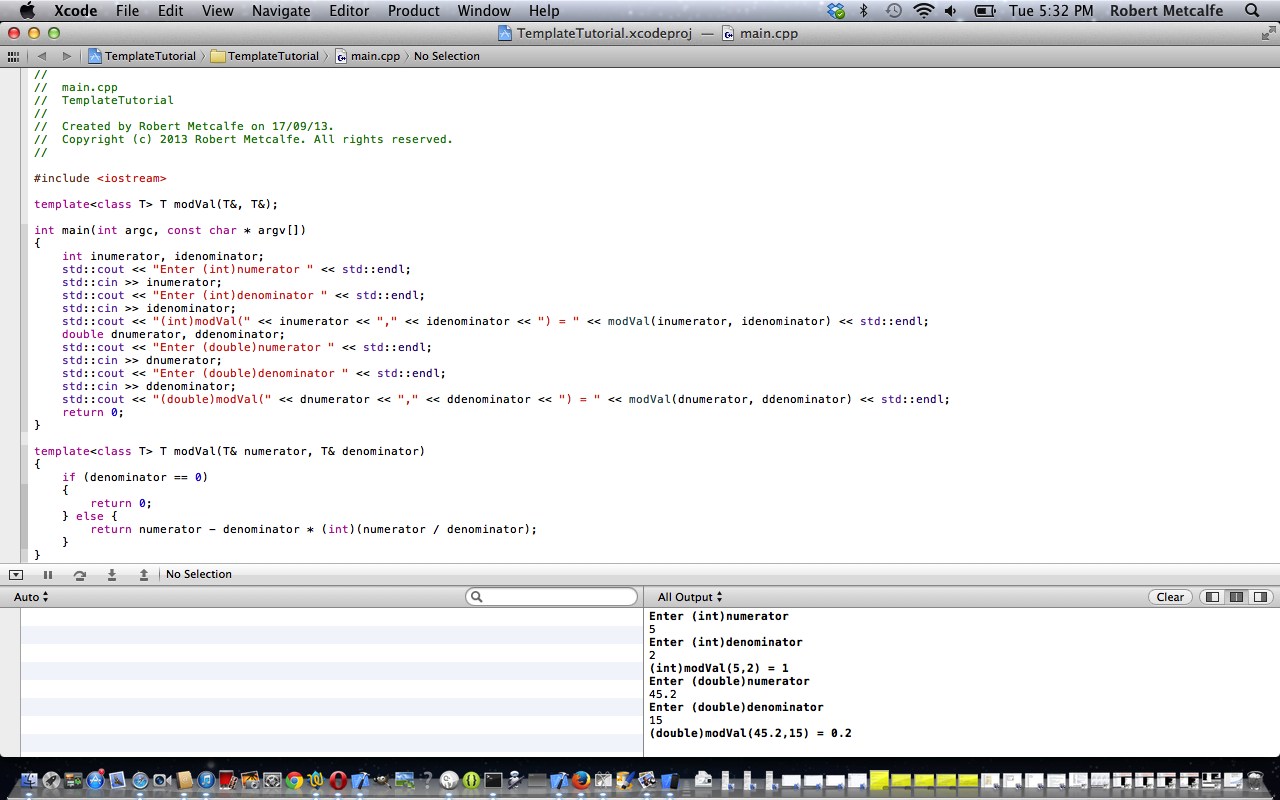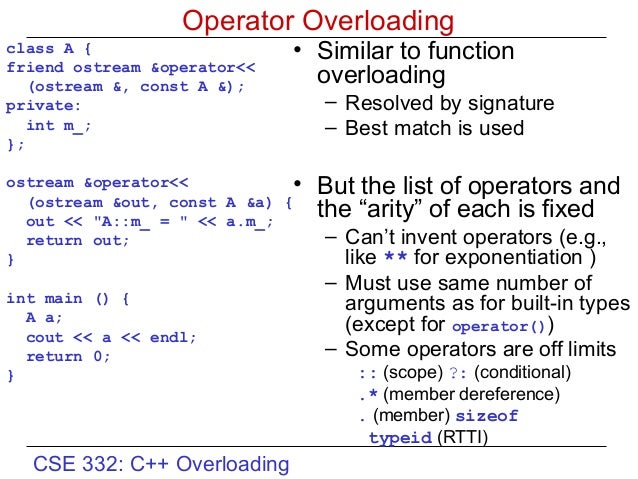C++ Template Member Function
C++ template member function - In c++ this can be achieved using template parameters. The problem is that buttonclickedevent is a member function and you need a pointer to member in order to invoke it. A function template behaves like a function except that the template can have arguments of many different types. Function parameter list, member initializer list, attribute list, etc. Just like regular function parameters can be used to pass values to a function, template parameters allow to pass also types to a function. The only member function in the previous class. There are three kinds of templates: In a function template, the template parameter pack may appear earlier in the list provided that all following parameters can be deduced from the function arguments, or have default arguments: Now, alternatively, it is also possible for the template member function to be defined independently of the declaration of its class template. Construct and insert element (public member function) emplace_back construct and insert element at the end (public member function) allocator:
The compiler will use the template arguments that you used, in this case, to create the. A template parameter is a special kind of parameter that can be used to pass a type as argument:
Cpp Template Function
The problem is that buttonclickedevent is a member function and you need a pointer to member in order to invoke it. A template parameter is a special kind of parameter that can be used to pass a type as argument: A function template behaves like a function except that the template can have arguments of many different types.
Virtual function in c++ with example pdf
Now, alternatively, it is also possible for the template member function to be defined independently of the declaration of its class template. Function parameter list, member initializer list, attribute list, etc. The compiler will use the template arguments that you used, in this case, to create the.
TreeSet data structure in C++ Mateo Terselich Medium
Now, alternatively, it is also possible for the template member function to be defined independently of the declaration of its class template. The problem is that buttonclickedevent is a member function and you need a pointer to member in order to invoke it. In a function template, the template parameter pack may appear earlier in the list provided that all following parameters can be deduced from the function arguments, or have default arguments:
friend function(c++)
The problem is that buttonclickedevent is a member function and you need a pointer to member in order to invoke it. In a function template, the template parameter pack may appear earlier in the list provided that all following parameters can be deduced from the function arguments, or have default arguments: In c++ this can be achieved using template parameters.
Penjelasan Dan Cara Menggunakan Static Member Function Belajar C++
Now, alternatively, it is also possible for the template member function to be defined independently of the declaration of its class template. There are three kinds of templates: The only member function in the previous class.
C++ overloading
The compiler will use the template arguments that you used, in this case, to create the. Function parameter list, member initializer list, attribute list, etc. The problem is that buttonclickedevent is a member function and you need a pointer to member in order to invoke it.
C++Basics with Visual Studio 2019 Step by Step Guide CodingGrammar
A template parameter is a special kind of parameter that can be used to pass a type as argument: The only member function in the previous class. A function template behaves like a function except that the template can have arguments of many different types.
Pengertian Abstraksi Pada Bahasa Pemrograman Belajar C++
The problem is that buttonclickedevent is a member function and you need a pointer to member in order to invoke it. A function template behaves like a function except that the template can have arguments of many different types. Just like regular function parameters can be used to pass values to a function, template parameters allow to pass also types to a function.
Just like regular function parameters can be used to pass values to a function, template parameters allow to pass also types to a function. In c++ this can be achieved using template parameters. The compiler will use the template arguments that you used, in this case, to create the. There are three kinds of templates: A template parameter is a special kind of parameter that can be used to pass a type as argument: A function template behaves like a function except that the template can have arguments of many different types. The only member function in the previous class. Function parameter list, member initializer list, attribute list, etc. Now, alternatively, it is also possible for the template member function to be defined independently of the declaration of its class template. In a function template, the template parameter pack may appear earlier in the list provided that all following parameters can be deduced from the function arguments, or have default arguments:
Construct and insert element (public member function) emplace_back construct and insert element at the end (public member function) allocator: The problem is that buttonclickedevent is a member function and you need a pointer to member in order to invoke it.







